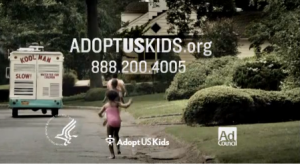She enters the doctors’ office, her mind bustling with so many questions: “How will the medication affect my baby? How will it affect me? What will happen in the hospital? Will my baby go through withdrawal? Will they call CPS? Will they take my baby from me?” She is thankful the office is nestled in a row of other professional offices with a nondescript name—nothing that will add more to people shaming or stigmatizing her. Inside, she meets kind doctors who do not judge her, but offer treatment and support. She meets other pregnant women like herself and begins to feel less alone with her concerns. She looks forward to learning about her baby’s development and starts to feel hopeful. She is addicted to prescription pain killers and she is like many women who come for treatment to Dr. Richard Blondell, a family physician who now works with pregnant and parenting mothers addicted to prescription painkillers, and his team at the University at Buffalo Family Medicine Special Services.
Prescription drug abuse is the fastest-growing addiction in the United States. Pregnant women with addiction to painkillers are a subpopulation of this epidemic. According to a 2012 study in The Journal of the American Medical Association, the number of newborns showing symptoms of withdrawal from opioids rose in the U.S. from 1.2 to 3.4 births per 1,000 between 2000 and 2009. That’s over a 35% increase within a decade.
Dr. Blondell says that the typical patient they see at his program are younger women (late teens, early twenties); they tend to be Caucasian, they tend to come from suburban environments and are working, and they tend not to be criminally involved. They are addicted to prescription painkillers. He notes that “about a third of the women became addicted through personal prescriptions that were given to them for legitimate reasons. About a third became addicted because they took medications that were diverted from somebody that had a legitimate prescription, usually a friend or a family member, and oftentimes it was diverted for a legitimate reason, like a sprain or a headache. And another third of the time, they just did it to start partying.”
Research has shown that one of the most effective courses of treatment for those addicted to prescription drugs is substitution-oriented medication, such as buprenorphine/naloxone, due to its ability to reduce both cravings and relapse. Dr. Blondell’s program provides substitution-oriented medication to pregnant patients because it has been found to be safer for both the mother and her fetus than abstinence, and after the birth the baby does better as well. However, for patients who are parents, along with those who have a childhood history of physical and/or sexual abuse, additional treatment besides medication may be needed.
Since 2006, trainers from CDHS’s Child Welfare Training Institute have worked with Dr. Blondell, his colleagues, and students through our College Partnership Program to support this population of pregnant and parenting women. Jeannette Climenti, the lead CDHS partner on the project, says the purpose of the first project in 2006 was to provide caseworkers with an understanding of opioids, including the street names for the drugs. Since then, the program has blossomed into a demonstration project that will determine whether a parenting intervention conducted via short outpatient sessions, provided alongside medication-assisted substance abuse treatment, can improve parenting outcomes for opioid-dependent pregnant women with a history of physical and/or sexual abuse. The ultimate purpose of the project is to inform child welfare caseworkers and family court personnel of the efficacy of supporting the combination parenting intervention/medically-assisted substance abuse treatment as a viable option to abstinence-only treatment, thereby encouraging the inclusion of this approach in child welfare service plans. Climenti notes that “the project aims to assist pregnant opioid-dependent women who are or may become involved with the child welfare system to achieve the goals of safety, permanency, and well-being for their children.” Another CDHS partner involved with the project is Will Rea, a Training Specialist with the CDHS Child Welfare Training Institute. Rea believes that the project “will help widen the treatment options and services available to parents struggling with addiction.” He further notes that “CDHS has advocated integrating a parenting component with treatment that supports parents’ efforts to provide safety, permanency, and well -being. It is exciting and rewarding to participate in an endeavor that translates statistics and hypotheses into a real improvement in people’s lives.”
The next of this three-part series will give a glimpse into what happens when a pregnant woman enters treatment with Dr. Blondell’s program and how CDHS supports child development education for the program’s participants. Stay tuned!







